Off-Grid 101
Sharing the lessons of going it alone
Going Off The Grid means different things to different people.
One iteration is me living barefoot on the land, not washing my long hair and disappearing down disinformation rabbit holes: “Turn on, tune in, drop out” as Timothy Leary urged in the 1960s.
The resilience and persistence of Portuguese brambles and the spiky grass seed pods that drive Simon the dog to distraction keep my shoes firmly attached to my feet, and while I could do with a trim, the flowing locks ship sailed long ago.
My journalistic career has also inoculated me against the explosion of conspiracy theories that social media and the oncoming wave of AI generated lies will no doubt bring, and I’m happier with a wobble from wine that anything psychedelic.
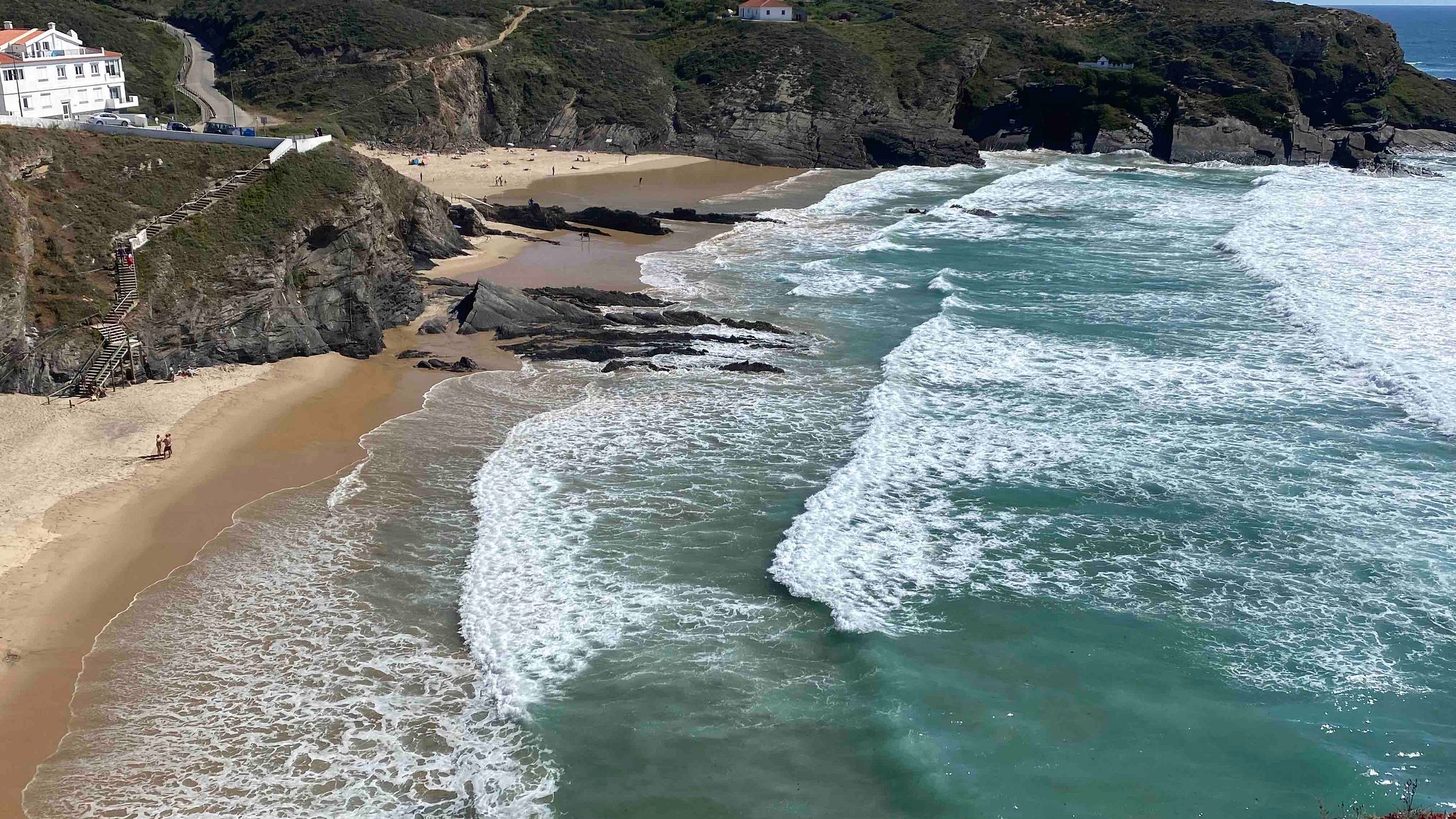
Our version of off the grid is a bit more straightforward: living as comfortably as possible without being physically connected to any of the services most people take for granted.
We’re responsible for sourcing the basics like water and power, heating, treating the waste and keeping in contact with the outside world.
A robust car helps, and a second puncture in a week is a reminder of how much we depend on reliable transportation.
Helped by passing friends – and by a passing stranger – it was also a great reminder of the important role community plays in remote rural places.
Every day continues to be a school day and our big take-away is keeping the balance between what you’ve got and what you need to do with it.
With this in mind, I’m using my 101st despatch for an Off-Grid living 101:
1. Water
There are many things which keep us awake at night, but one of the most common is water - and the potential lack of it – especially with this week’s record-breaking temperatures in Portugal for April and talk of drought again after all that rain in December.
We have enough for us – for now – but our tourism lodge will need enough for up to 20 guests at any one time.
Conservatively we need 200 litres per person per day, but some people can be very liberal when taking a shower, so we’re looking at four to five thousand litres every day in the height of summer when evaporation counter-intuitively robs our pool and our lake during the night.
How do we nicely but firmly ask our guests to be frugal with water? Any thoughts?
Ana is researching shower heads that save water by either increasing pressure to provide the feeling of power, or adding air to give the appearance of volume.
We progressed from buying mineral water to filling up at a spring (once the invisibility cloak of a municipal dustbin was removed to reveal the terrible truth of how much plastic we actually throw away), and now we collect and drink (and carbonate) rain water.
Regular readers will know we decided to throw the dice and dig a BFH – a Big F***ing Hole – with the help of a twitching man and some divining inspiration.
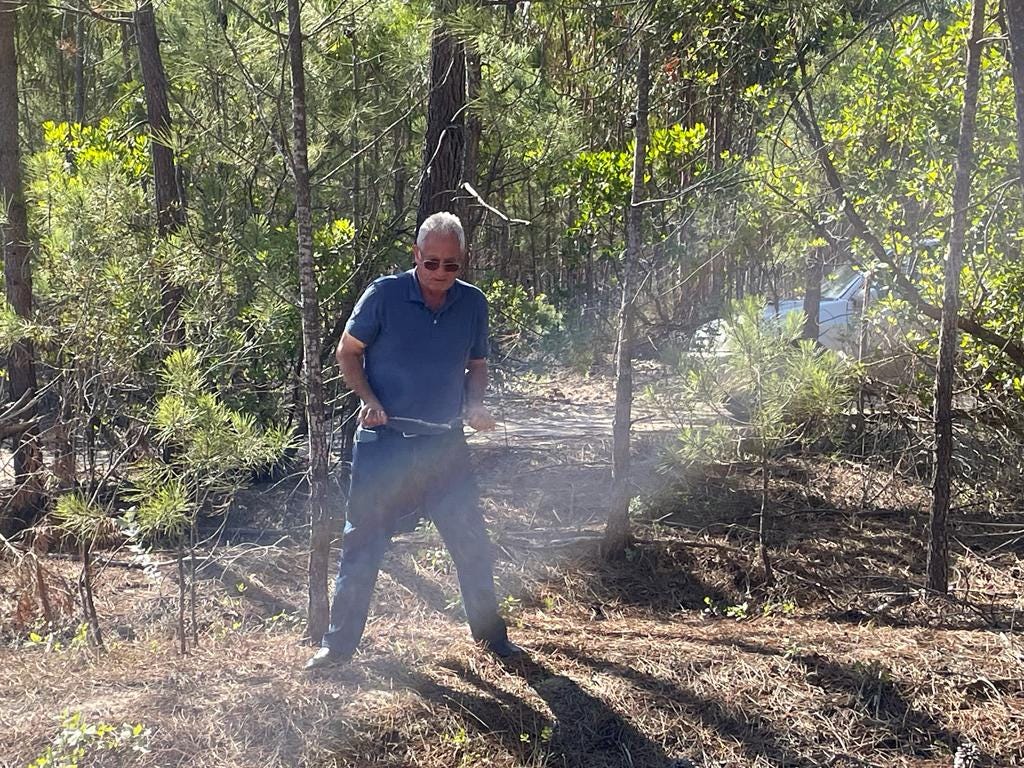
The borehole diggers stopped at 205m, estimating it could produce 5,000 litres a day – not a lot in the water world, but enough to keep our guests hydrated.
But the big unknown was quality – why invest even more money in a pump and hundreds of metres of pipe and power cord if the water’s even worse than what we have already?
But you don’t know if you need a pump until you have a pump – to clean out all the debris and then take a good enough sample – and so we put it in and set about wasting a lot of water.
With regular measurements of how long it took how much water to flow into the field we counted nine thousand litres on the first day and the same on the second...but it’s all about quality.
The new water is slightly salty, but doesn’t appear to have much iron in it (which would require a separate filtration system), but let’s see what the lab says.

2. Electricity
When we first moved in, it took a little while to balance what we wanted to power with what we had to power it with...and the answer was not a great deal.
Batteries barely took us through the night, and the system would trip if we ran a washing machine while making toast.
Our former Bavarian neighbours moved their panels by hand three times a day to track the sun and provide them with just enough power for LED lights and the bare essentials.
Talk about the perfect balance.
Courtesy of our huge new system (and a significant investment), we currently have more electricity than we know what to do with, but that will soon change.
Handing our electrical engineer Bruno a list of all the things we’d like to install in the new buildings, he estimated we’d need a system three times bigger if they were all running at once.
So now we’re reducing ovens, rationing hair dryers and favouring efficiency over anything else. We could make it work, but our guests will not be so forgiving.
3. Waste water
By far my favourite job is unblocking the sewage pipes after fast-growing trees have invaded them in a wandering search for water.
That is top of mind as we plan the routes for the waste and the location of our new reed-bed treatment system.
The ideal spot is slightly higher on the hill, but we can’t have macerater pumps propelling poop willy-nilly, so gravity is our friend.
Recycling grey water from showers and sinks into toilets sounds great, but that water still needs to be cleaned and every house would need a separate filtration system.
Anything that needs power needs to be controlled and told to run when we want it to – when the sun is shining and we’re not slow cooking wild boar, washing clothes and making toast while I dry my flowing locks.
This week we had a visit from Debbie & Colin Davis who sought us out after hearing my From Our Own Correspondent despatch from the Valley of the Stars (listen here from 24’44”), reading the blog and feeling inspired enough to want to spend a week exploring the Alentejo!
It was great they could stay with us and give us some thoughts on water and building after renovating two buildings of their own - including a large barn conversion in France.
4. Heat
The current houses use thermal solar systems which work brilliantly – heating up large tank-loads of water by day with heat-exchanger panels on the roof.
But they need to be monitored, and this week I had to call on Boiler Master Guido to show me how to let air out and re-pressurise the system when it stopped producing hot water.
Our wood fire also heats our water tank and we have plenty of excess wood to burn and so we didn’t use any gas all winter.
The lesson is simple: keep it simple. The more systems there are, the more there is to go wrong, and so we’re installing heat pumps in the new buildings for hot water and underfloor heating/cooling through electricity.
We’re relying on photovoltaic power in the knowledge that the coldest times here also have the clearest skies and the new panels work surprisingly well in cloud.
If the sun ain’t shining it’s neither generating electricity nor is it heating water.
The only backup will be a generator that we hope not to need.
5. Clearing the land
We’d rather not call on the emergency services to save our house from fire (again), so it’s up to us to manage the land, keep it clean and invite in the good fire, as our pal Wade says.
While we await help in the form of sheep, goats or donkeys (still TBC), the gym work is going well and the heat wave is ensuring I am wiped out and dehydrated after spending three or four hours every day strimming the grass before the legal fire-protection deadline (tomorrow).
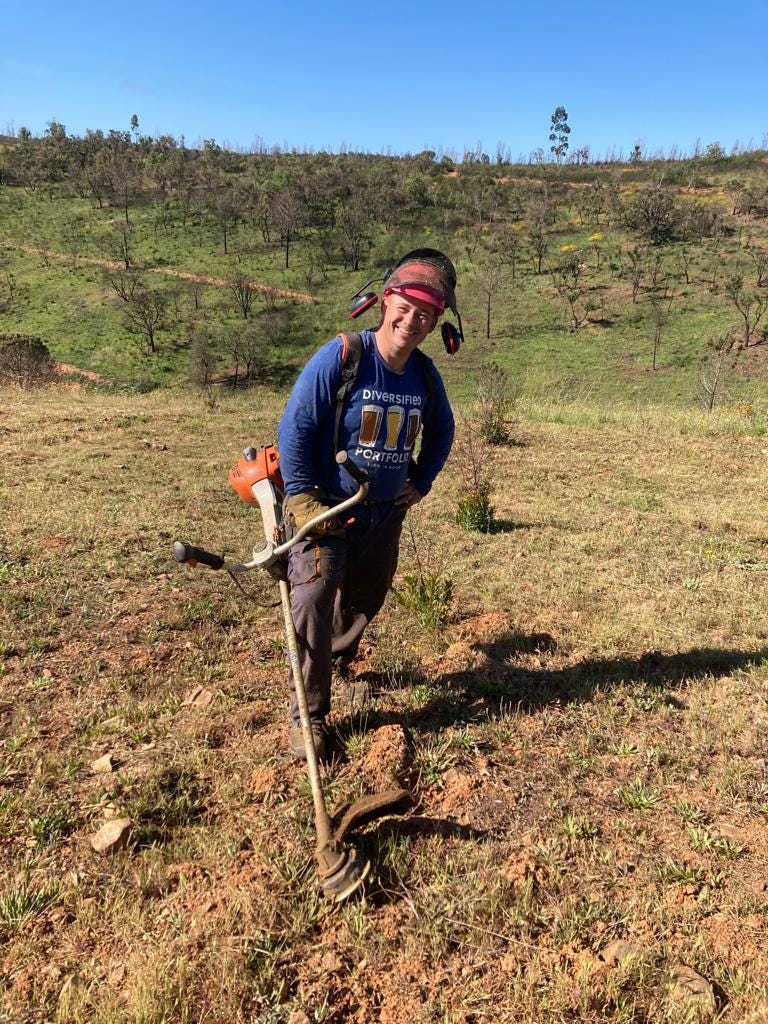
But it worked last year - both in helping to save us from the fire and shedding a few pounds - and stepping on the scales straight after a short-term weight loss session makes me feel better even if it means nothing once I’ve rehydrated!
6. Connectivity
It’s the one thing we got right early on and continue to enjoy – a line-of-sight radio link to a fibre optic cable that allows us to stream high-definition telly.
On the occasional time it fails us we ponder Starlink – a now affordable and accessible satellite internet system – but we just don’t like Elon Musk very much and don’t want to make him even richer.
Every expert has their way of doing things – based on experience, or what it is they’re trying to sell – but most assume an endless supply of energy which we don’t have.
If only there was some kind of off-grid consultant to bring it all together.
“You could do that,” said our old friend Tim Johnson who has been staying with us with wife Sian.
“You could run whole projects, find builders, project-manage, and create the perfect system for people who want to build off the grid.”

It’s bad enough trying to keep our heads above water on our own project, let alone someone else’s.
To be honest, the whole idea fills me with fear and panic...but never say never, eh?


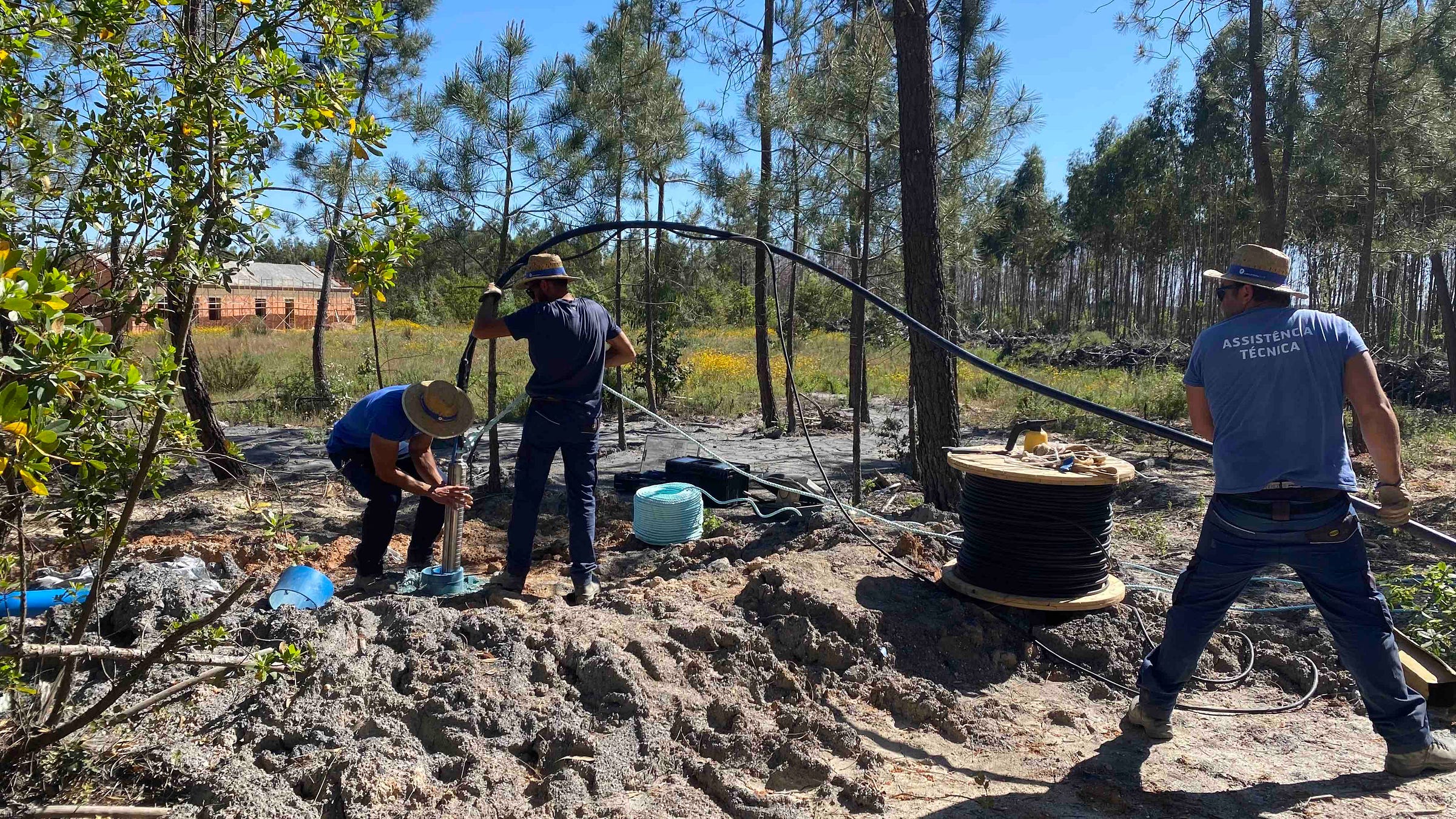
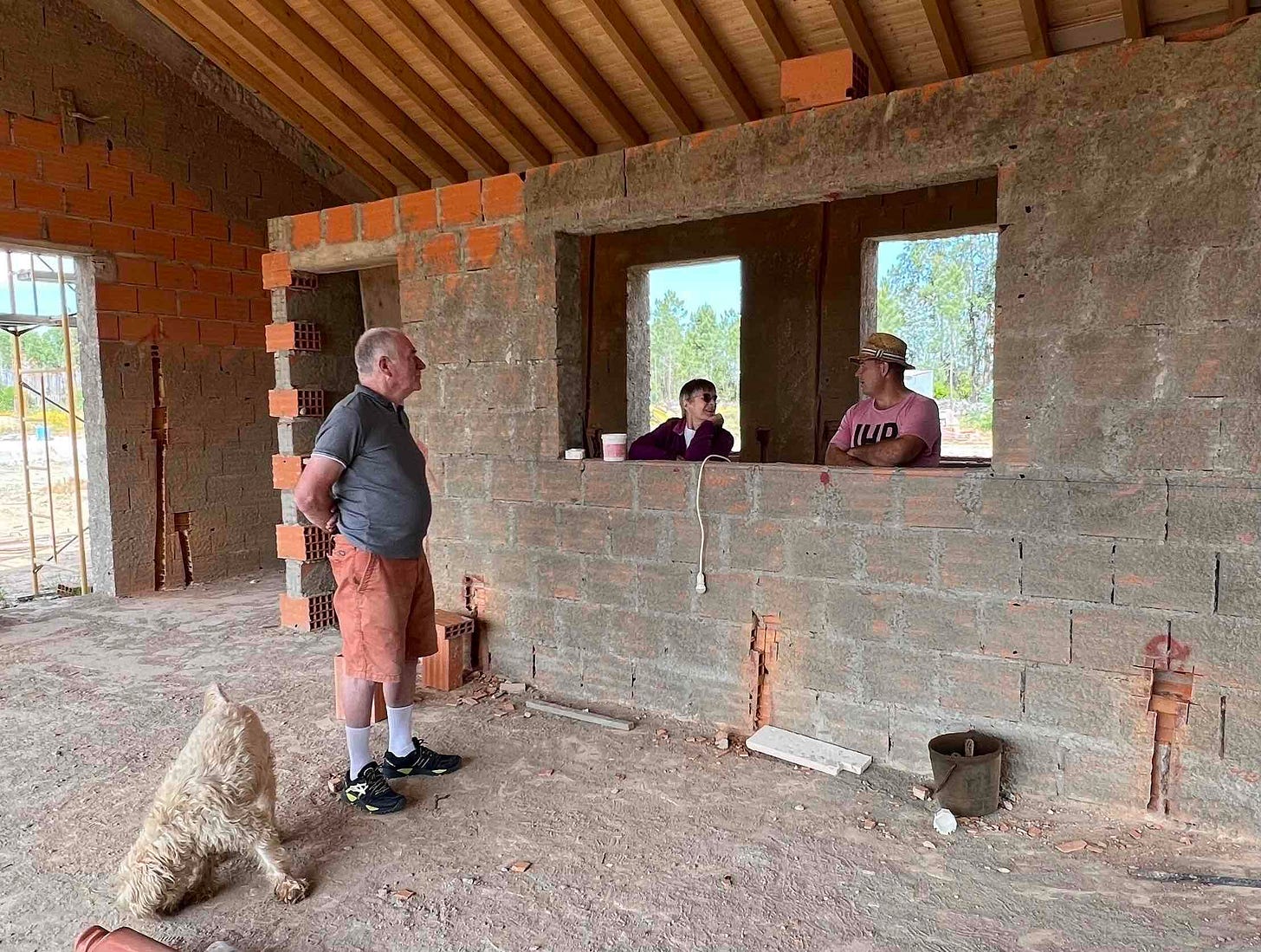
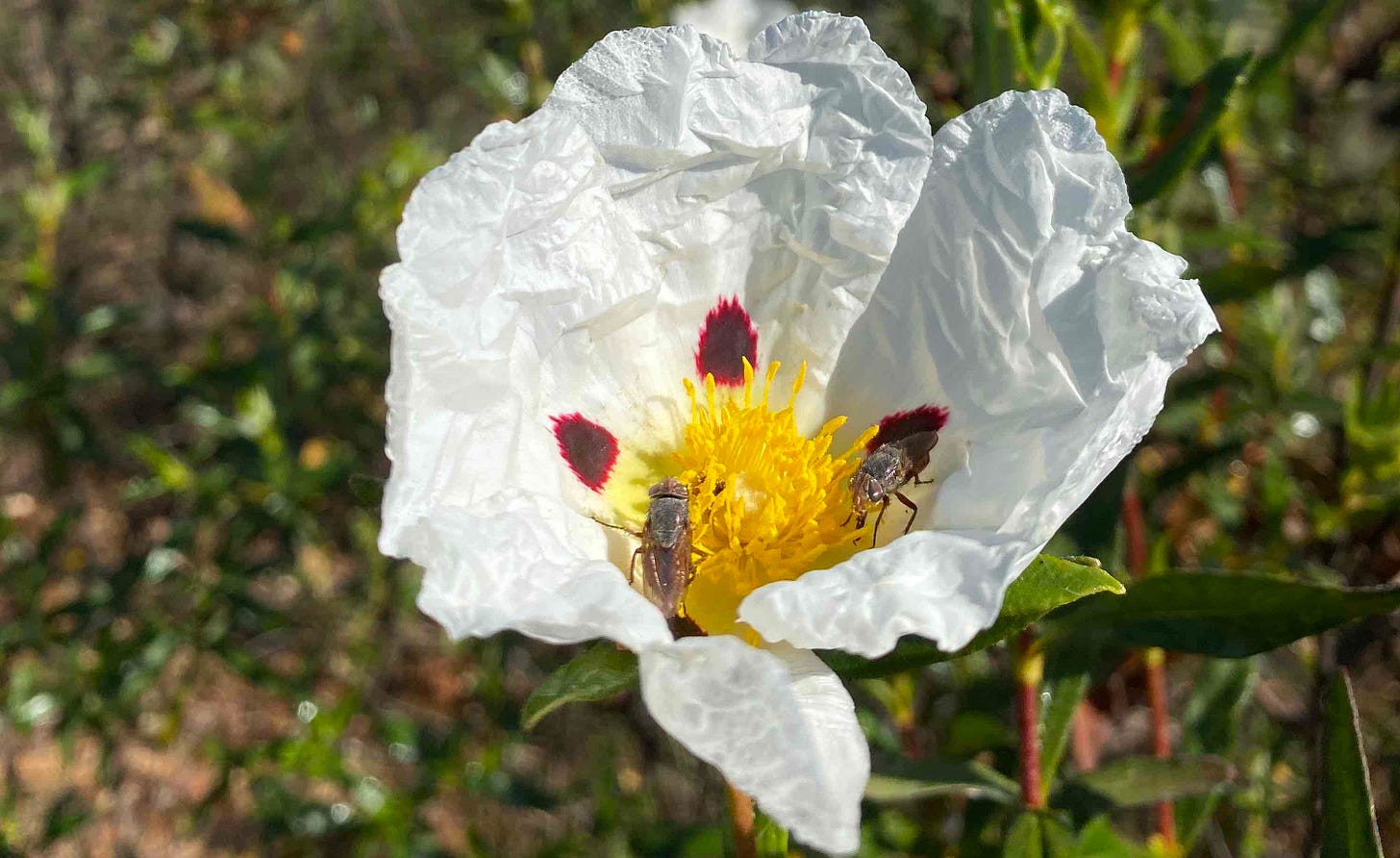
My wife intelligently suggests a 3 pronged approach:
1) Knowledge; explain the situation
2) Awareness; make the guests physically aware that there are consequences. For example with tokens that each give water (perhaps 30 or 45 seconds) each. There could be a large supply and they could be included in the price of the room but the action of having to put a token in for each portion of liquid should instill a mindset of frugality.
3) Technical solutions: Timed (token dependent) activation, mist instead of waterfall, etc.
Most definitely the information and edification aspects very important but do not underestimate the power and value of the effects of physical activity in the learning process. Just the action of putting a token in a slot would reinforce any intellectual aspect of the learning process. (My wife is a nurse with (among others) child psychology speciality). It blew my mind when I learned about the connection between manual dexterity and learning which has been proven and is a cornerstone of Piaget's cognitive development theory.